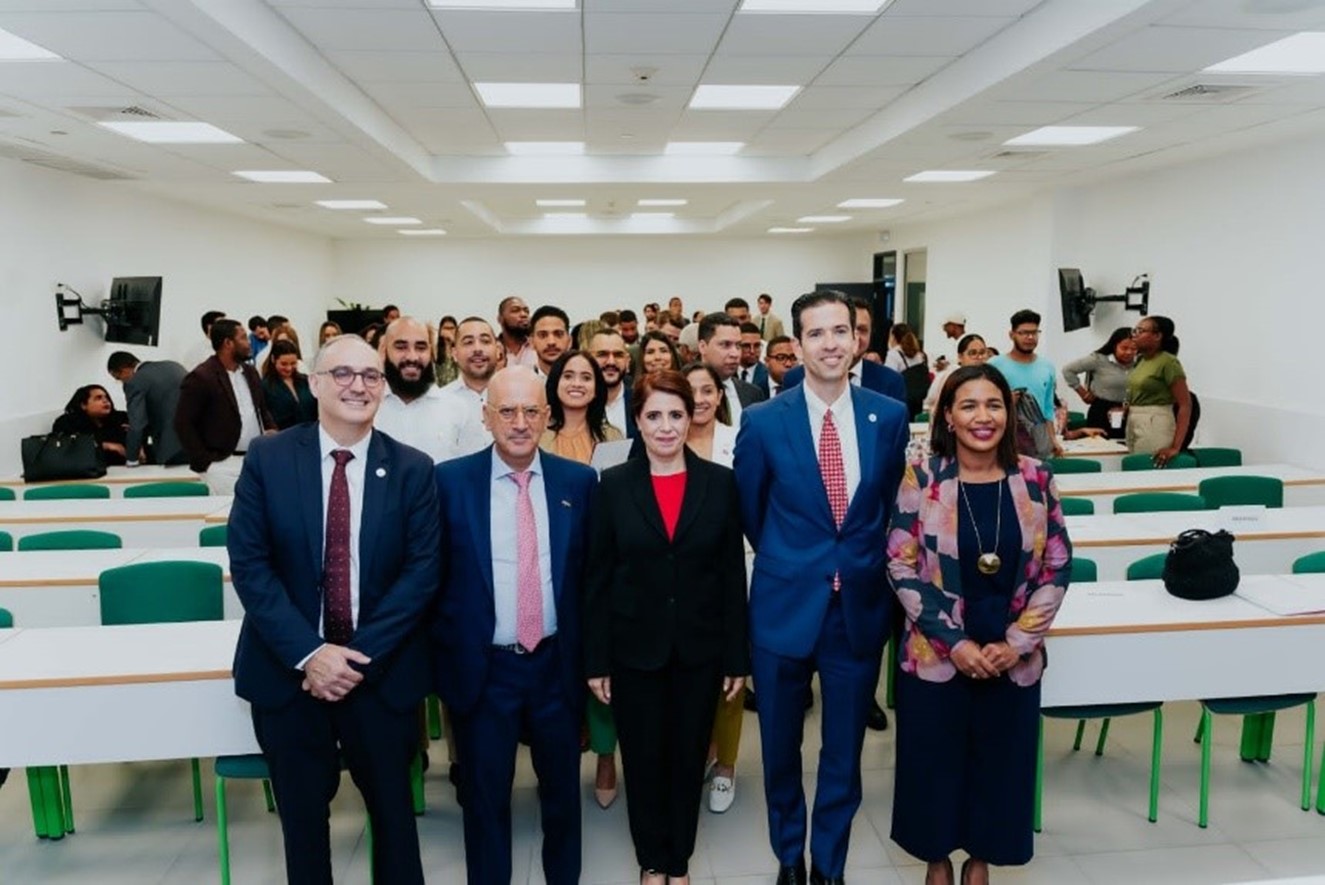
Given the prevalence of youth candidates and staff engaged in the upcoming Dominican Republic elections, it is probable that some newly elected officials and their staff will be young individuals. In Jamaica, the elections in 2025 represent an opportunity to empower young candidates and staff to engage politically and have their voices heard. Given these electoral contests and the opportunities they present to youth, it is crucial to enable youth leaders to elevate their voices and empower them to continue fostering democratic governance in the region.
In February 2024, IRI launched the third iteration of its youth leadership program, funded by the National Endowment for Democracy (NED), in the Dominican Republic and Jamaica. This program, like prior IRI programming in the Caribbean, will foster youth leadership by equipping youth with the capacity to serve as leaders in their communities. IRI will provide young candidates, elected officials, and their staff with skills in public speaking, advocacy, project management, public policy development and analysis, as well as platforms to exchange best practices around key issues such as citizen security and economic development.
IRI’s present efforts build upon past successes generating youth leadership and are part of its broader strategy to elevate the representation of young individuals in decision-making roles. In the 2023 iteration of the program, IRI implemented the Caribbean Youth Fellowship (CYF) in collaboration with the Centro de Estudios Financieros (C.E.F.), the University of West Indies (UWI) and with the support from the NED. This initiative empowered young leaders in the Dominican Republic, Jamaica, and Trinidad & Tobago by equipping them with practical leadership skills and the ability to develop and implement community engagement initiatives that addressed local challenges.
Throughout the 16-week course, 106 youth leaders across partner countries immersed themselves in a comprehensive curriculum designed to enhance their civic engagement and political participation. The program covered a range of topics, including conflict resolution, business management, project management, communication strategies, proposal writing, outreach and advocacy, public policy development, and strategic thinking. The goal was to prepare these emerging youth leaders, including several from marginalized communities, to cultivate positive change in their communities and themselves become decision-makers.
Following the theoretical phase of the course, participants were challenged to apply their newfound skills by developing public policy proposals and creating advocacy campaigns. In Jamaica and Trinidad & Tobago, participants showcased their initiatives through social media campaigns reaching approximately 20,000 social media interactions through Facebook and Instagram. In the Dominican Republic, participants pitched their proposed policies to a committee of experts. The top three teams presented their policy proposals at the program’s closing ceremony on October 31, 2023, which included the Dominican Republic’s Minister of Youth, Rafael Feliz. A Jamaican participant expressed his gratitude for the course, stating “The connections made through the CYF program played a pivotal role in my professional development by providing valuable insights, networking opportunities, and mentorship that significantly contributed to my growth and learning.”
The CYF program not only cultivated a network of Caribbean youth leaders but also opened doors for its participants. Fana Wiggins, an alum from Trinidad and Tobago, was accepted into IRI’s Generation Democracy Network and invited to attend the 2023 Summit for Democracy. Another alumni from Jamaica, Yanique Tracy, was accepted into the IRI McCain Fellowship for Freedom initiative. These achievements underscore the program’s impact in fostering a generation of leaders committed to addressing ongoing issues in their countries. In addition, some participants, through their newly gained skills in political planning, leadership and strategic thinking have taken on leadership roles within their parties. They gained confidence in their roles and recognition from their peers.
Additionally, participants made valuable connections, with 80 percent of interviewed participants reporting that they communicated at least two times a week with participants from their countries. The success of the CYF programs extends beyond program duration, manifested by a growing network of empowered youth leaders committed to making a difference. With each new phase of youth leadership training, IRI’s impact continues to be amplified, contributing to a positive ripple effect throughout the Caribbean. As these efforts evolve and expand, their legacy is marked by the alumni achievements, reinforcing the importance of investing in the potential of youth to drive positive transformation.
Top